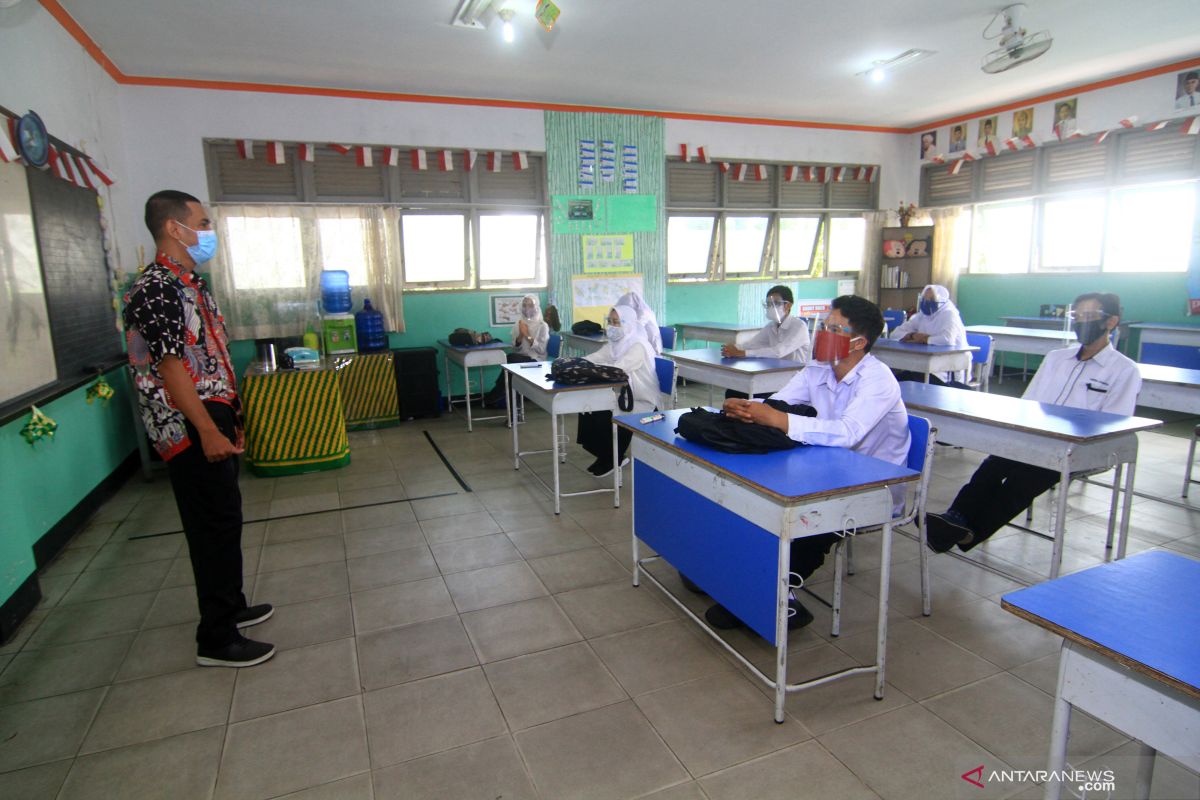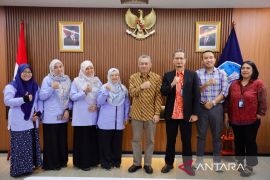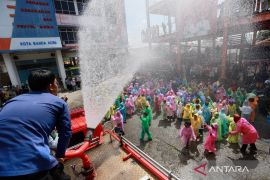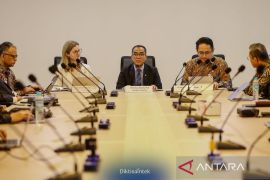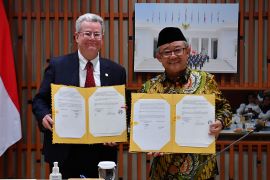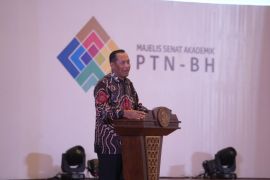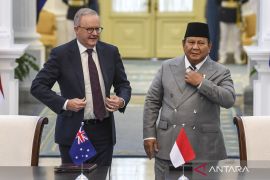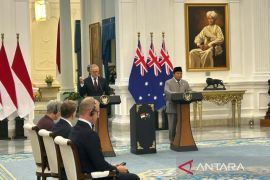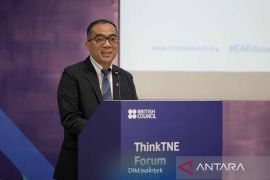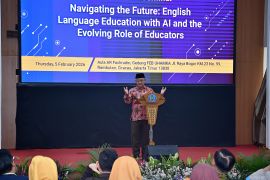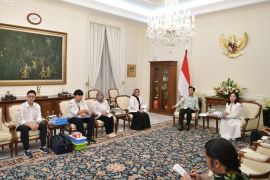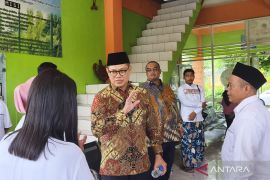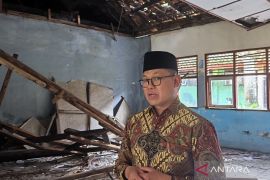"Hence, regional governments are obligated to again shut down schools. The implementation and evaluation of the face-to-face medium of learning is the responsibility of the regional governments that are supported by the central government," Head of the Cooperation and Public Relations Bureau of the Ministry of Education and Culture Evy Mulyani noted in a statement here on Thursday.
Mulyani urged local education and health offices to continually coordinate with the Task Force for the Acceleration of COVID-19 Response in monitoring the risk of COVID-19 transmission in the regions.
The central government allows the implementation of face-to-face school activities solely in areas designated as green and yellow zones on the risk map for COVID-19 transmission and supported by approvals from the local government, school principals, school committees, and parents of students.
"Although the school has decided to conduct face-to-face learning, the last requirement is the consent of the parents of the students. If the parents do not agree, the students will continue to learn from home and cannot be compelled," she remarked.
The central government has allowed the stage-wise implementation of face-to-face teaching and learning activities at schools, albeit with the imposition of several restrictions, including each class only being allowed 30-50 percent of the standard capacity of the class.
At primary, junior high, senior high, and vocational high schools, each class conforming to the initial standard of accommodating 28-36 students can now allow only 18 students.
The Special School, which originally had five to eight students in each class, can currently only allow five students per class. Each class, offering early childhood education, in which 15 students earlier studied, can currently only permit five students.
Learning time has also been reduced, and a learning group rotation system is being applied in accordance with the situation and conditions of each educational unit.
Remote areas and outermost regions are facing a technical issue of holding online classes, so the government has allowed the application of face-to-face learning at schools, with several provisions.
Currently, 88 percent of the remote and outermost regions are in the yellow and green zones. They are allowed to conduct face-to-face class activities but are required to apply strict health protocols.
In the meantime, Silwanus Sumule, a spokesman of the Papua COVID-19 Task Force, stated that 289 school-aged children in Papua Province had contracted COVID-19 so far.
Related news: Ministry mulls reopening schools outside COVID-19 green zones
Related news: Schools reopening in green zones under stringent procedure
Related news: Govt to disburse Rp2.7 trillion to 21,000 Islamic boarding schools
Related news: Bekasi city declared 'green zone'; to reopen schools July 13
Translator: Indriani, Fardah
Editor: Sri Haryati
Copyright © ANTARA 2020
